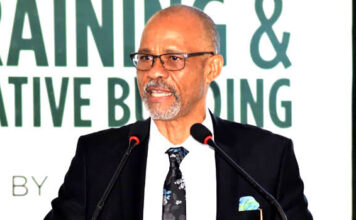The Lagos State Health Commissioner, Professor Akin Abayomi, mentioned that the government of Lagos is actively gathering information about the recent cholera outbreak in the state and that the situation is under control.
This statement was given to the News Agency of Nigeria in Abuja on Thursday.
There has been a surge in severe cases of gastroenteritis in specific areas of Lagos State like Eti-Osa, Lagos Island, Ikorodu, and Kosofe within the last 72 hours. This outbreak has resulted in 60 hospitalizations and five deaths, mainly due to delayed medical attention resulting in severe dehydration.
Efforts to monitor and respond to this situation have been intensified, with investigations focusing on a potential water contamination source in the Lekki and Victoria Island regions. Samples have been collected for testing to confirm the presence of cholera.
The recent rainfall has worsened the situation, particularly in densely populated areas with inadequate sanitation facilities.
Cholera, a highly transmissible and potentially fatal disease that causes severe diarrhea, is a significant health threat in places lacking proper water treatment and sanitation infrastructure.
Despite the confirmed cases, Abayomi reassured the public that preventive measures are in place to prevent a widespread outbreak of the disease.
“We have successfully contained the situation and prevented it from exploding. An update with detailed information and statistics is expected to be released later today,” he added.
He mentioned that the state had proceeded to monitor the situation closely and was implementing strategies to ensure the safety and well-being of residents.
“The public is advised to stay informed and follow recommended health guidelines,” he further stated.
The Nigeria Centre for Disease Control and Prevention stated that cholera is transmitted through contaminated food, water, and poor sanitation practices, primarily due to the absence of handwashing facilities.
Symptoms of cholera include severe watery diarrhea, vomiting, rapid dehydration, muscle cramps, fever, and in severe cases, collapse.
For treatment, oral rehydration salts are recommended for mild to moderate dehydration, while intravenous fluids are advised for severe cases under medical supervision.
Preventive measures include ensuring the safety of drinking water through boiling, chlorination, or the use of bottled water, avoiding ice made from untreated water, maintaining proper sanitation, and practicing good hygiene like regular handwashing with soap and clean water.
It is crucial for Nigerians to adhere to food safety guidelines and seek guidance from health authorities. Suspected cases of cholera should be reported through emergency hotlines or helplines.
The Lagos State Ministry of Health is dedicated to keeping the public informed and safeguarding the health of its citizens. As of April 28, Nigeria has recorded 815 suspected cholera cases and 14 deaths across 25 states.
